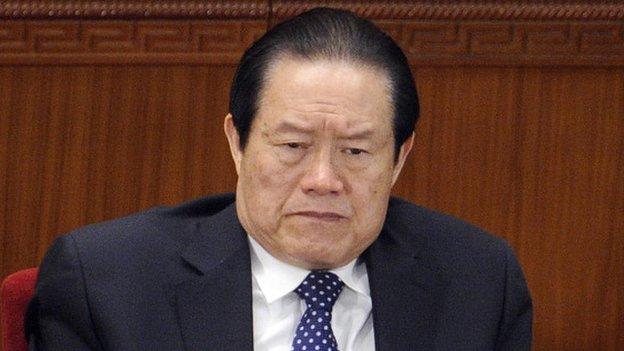The fall of Zhou Yongkang illustrated
- Published
Zhou Yongkang's life sentence was the finale of one of the most stunning falls from grace in the history of Chinese politics. The BBC's Celia Hatton tells this story of political intrigue with illustrations from cartoonist Morgan Chua.
In a crowd of dark suits and dyed black hair, it would have been difficult to tell that this man was once one of China's most powerful leaders.
For years, he held a prime spot on China's Politburo Standing Committee - the elite group at the very top of the government pyramid.
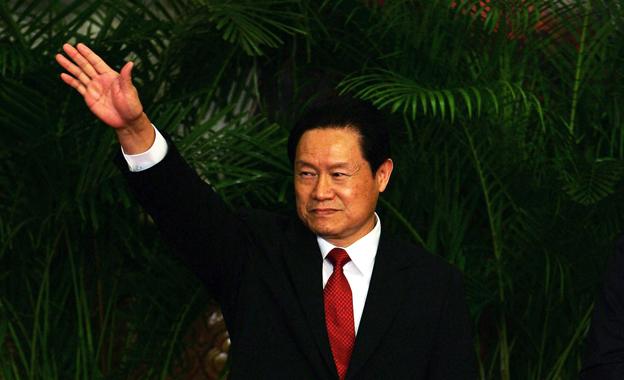
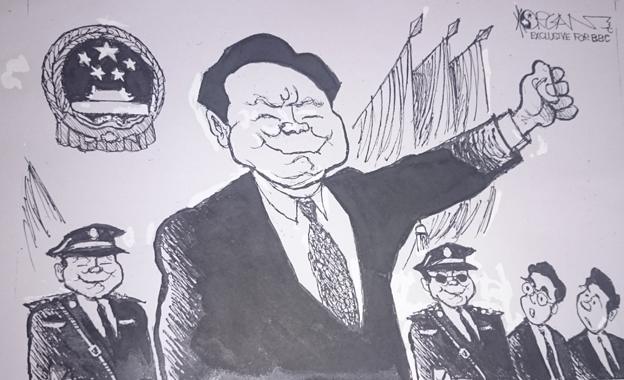
Zhou commanded the country's police and secret services with a budget even bigger than the Chinese military.
When he retired, he appeared untouchable. But he was detained last year. Now, he has been sentenced to life in prison for bribery, abuse of power and leaking state secrets.
Officially, he was accused of corruption and abusing power - even using influence to gain sexual favours.
But he was also convicted of "leaking state secrets" - a vague charge that indicates this trial is about much more than money.
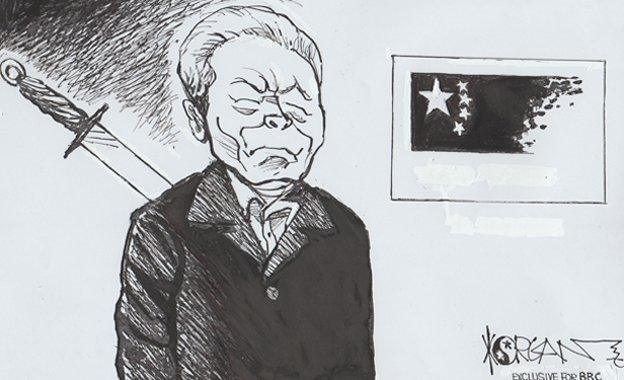
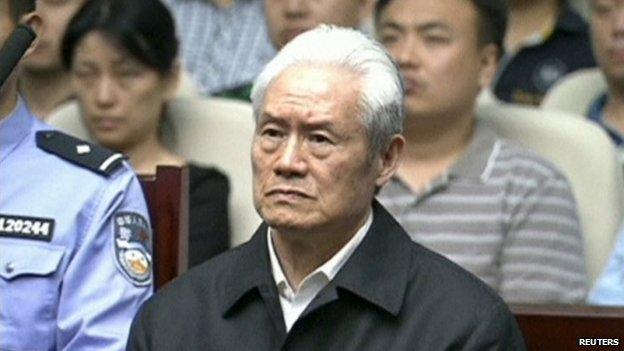
Many believe that this is really about politics and power. Zhou was the apparent loser in a high-stakes battle with China's President Xi Jinping.
It is commonly believed that he formed an internal power base that challenged Mr Xi's leadership.
The leadership also seems to be hinting that this was the case - China's top state newspaper has called him a "traitor".
Zhou's web of influence reached far beyond Beijing. One by one, those he had given patronage to fell.
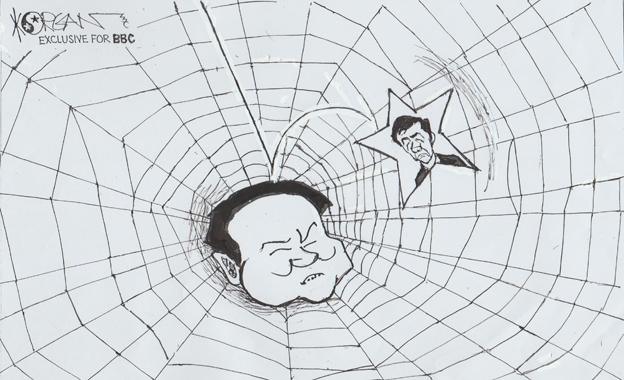
For months the noose tightened around Zhou's neck. It started with the sensational trial of Politburo member Bo Xilai, a rising star in the party who was seen by some as Zhou's successor.
Now, most of Zhou's relatives and former associates - stretching from his time in the oil fields in northern China to his time as the Communist Party boss in Chengdu - are also under arrest.
Many have already been convicted of corruption, a common fate for officials at all levels of the Chinese government.
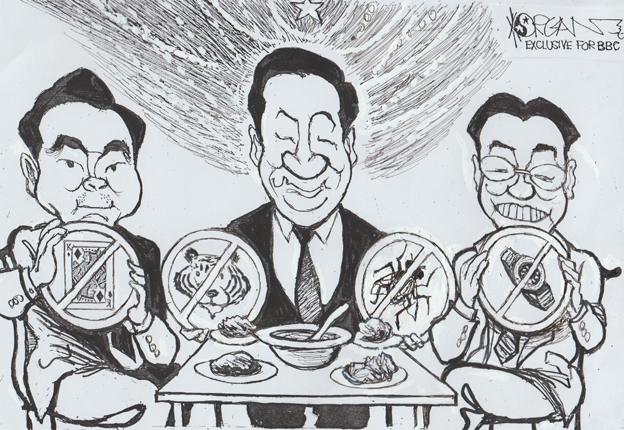
Running in the background of this power struggle is a massive anti-corruption campaign spearheaded by Mr Xi.
When he took the helm in 2012, Mr Xi promised to tackle corruption - arguing that it could lead to the downfall of the ruling Communist Party.
He began with a call to end lavish government banquets, calling for simple meals of "four dishes and one soup".
Then came the arrests. Xi Jinping famously promised to net both "tigers and flies" in his campaign, meaning that officials at all levels would be investigated for corruption.
China is even going beyond its shores in its pursuit of corrupt criminals. It has launched two consecutive high-profile operations, Fox Hunt and Sky Net, to force suspects to return to China.
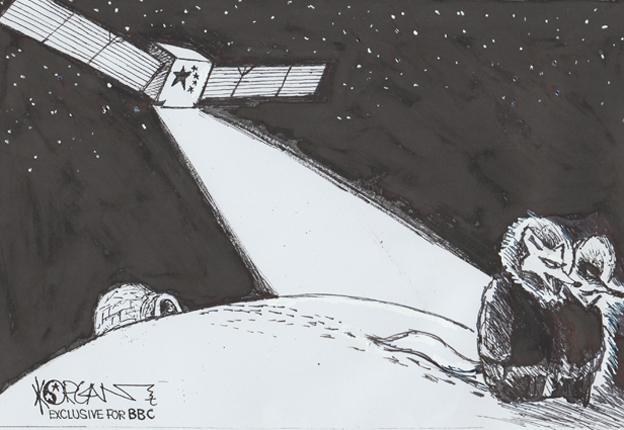
A public confession published by China's state media said that one "fox on the run" had finally returned to China from the US due to an unbearable roommate.
"The other tenant was tall and as big as a horse and always looked at my wife with kinky stares, which really terrified us," he explained. "My wife was always in a panic."
Many China watchers believe that Xi Jinping is using the anti-corruption campaign to kill two birds with one stone.
Officially, he is scrubbing the party clean, but it is also believed he is using the campaign to mask a purge of his political enemies.
President Xi rules with more concentrated power and authority than those before him and he appears to be rooting out dissent within the ranks.
- Published11 June 2015
- Published12 October 2015
